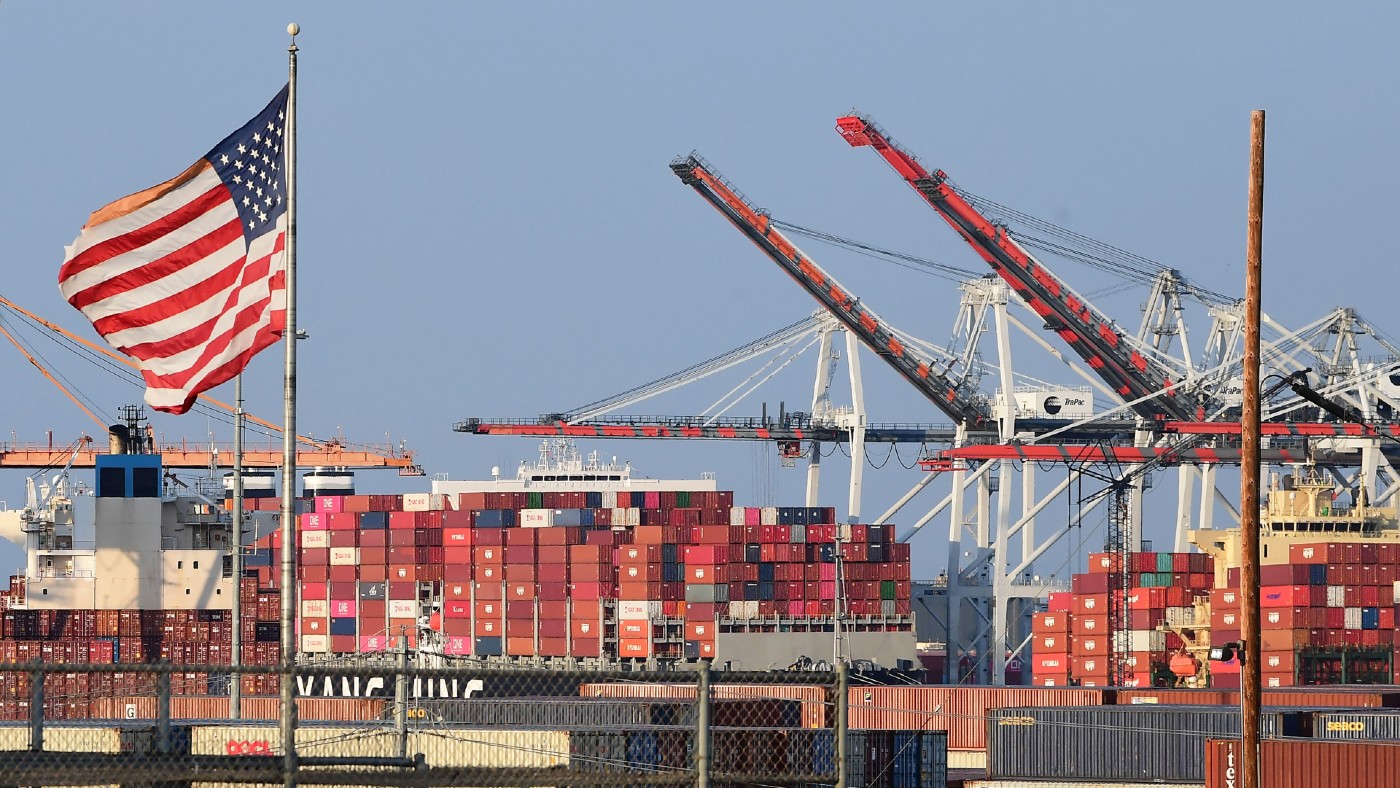Empty shelves: a nation of disappointed shoppers
Is it fair to blame the ‘materialistic citizenry’ for the shortages impacting US shoppers?

A free daily email with the biggest news stories of the day – and the best features from TheWeek.com
You are now subscribed
Your newsletter sign-up was successful
Why are American shoppers facing so many shortages? Experts have blamed a long list of factors, from shipping-container traffic flow to a shortage of truck drivers, said Lee Schafer in the Minneapolis Star Tribune. But the root cause is simple: too much demand. Americans have been buying stuff in huge quantities – as a result, imports hit an all-time high in September, eclipsing the same period in 2020 by 17% – and the system can’t keep up. The pandemic kicked off the spending spree, said Terry Nguyen on Vox (Washington DC). Locked down in their homes, Americans went online to blow the money they could no longer spend in restaurants or hair salons. Stimulus cheques only fuelled this addiction. Experts say supply chains will remain snarled into 2023 unless we can break “the cycle of thoughtless buying”.
Hear that, America? The supply-chain crisis is your fault, said James Freeman in The Wall Street Journal. You might think that President Biden would accept some responsibility for this “era of scarcity”. After all, it was he who handed out “astronomical” sums through Covid relief packages that fuelled demand even while his extended unemployment cheques were deepening labour shortages. But no, his administration and its allies would rather blame the materialistic citizenry. The messaging has been “insulting”, agreed Kaylee McGhee White in the Washington Examiner. The White House press secretary Jen Psaki sarkily lamented the “tragedy of the delayed treadmill”, as if the only people suffering are affluent home- gym owners. But many families are watching food, gas and other prices soar and wondering if “they have enough for groceries this month”.
It’s not just a problem for individuals. In Denver, schools are “struggling to get enough milk for breakfast and lunch”, said Jim Geraghty in National Review (New York). Small businesses are failing to get the goods to stay afloat. At this rate, necessities including food and medicine will be hard to find, said Amanda Mull in The Atlantic (Washington DC). It’s not our fault we’re a nation of consumers. We have been trained to think that by spending money, we are helping to keep our economy buoyant. We’ve also been persuaded that buying stuff makes us happy. But if, as good citizens, we want to do our part to keep the shortages from getting worse, we must re-evaluate what we really need – and “stop shopping”.
The Week
Escape your echo chamber. Get the facts behind the news, plus analysis from multiple perspectives.

Sign up for The Week's Free Newsletters
From our morning news briefing to a weekly Good News Newsletter, get the best of The Week delivered directly to your inbox.
From our morning news briefing to a weekly Good News Newsletter, get the best of The Week delivered directly to your inbox.
A free daily email with the biggest news stories of the day – and the best features from TheWeek.com
-
 The Week Unwrapped: Have televised confessions quelled protests in Iran?
The Week Unwrapped: Have televised confessions quelled protests in Iran?Podcast Plus, why has Elon Musk turned from Mars to the Moon? And will the BBC prove to be a puzzles champ?
-
 The week’s best photos
The week’s best photosIn Pictures An Andean god, a rogue squirrel, and more
-
 9 products to jazz up your letters and cards
9 products to jazz up your letters and cardsThe Week Recommends Get the write stuff
-
 Currencies: Why Trump wants a weak dollar
Currencies: Why Trump wants a weak dollarFeature The dollar has fallen 12% since Trump took office
-
 Elon Musk’s starry mega-merger
Elon Musk’s starry mega-mergerTalking Point SpaceX founder is promising investors a rocket trip to the future – and a sprawling conglomerate to boot
-
 TikTok: New owners, same risks
TikTok: New owners, same risksFeature What are Larry Ellison’s plans for TikTok US?
-
 Will SpaceX, OpenAI and Anthropic make 2026 the year of mega tech listings?
Will SpaceX, OpenAI and Anthropic make 2026 the year of mega tech listings?In Depth SpaceX float may come as soon as this year, and would be the largest IPO in history
-
 Leadership: A conspicuous silence from CEOs
Leadership: A conspicuous silence from CEOsFeature CEOs were more vocal during Trump’s first term
-
 Ryanair/SpaceX: could Musk really buy the airline?
Ryanair/SpaceX: could Musk really buy the airline?Talking Point Irish budget carrier has become embroiled in unlikely feud with the world’s wealthiest man
-
 Powell: The Fed’s last hope?
Powell: The Fed’s last hope?Feature Federal Reserve Chairman Jerome Powell fights back against President Trump's claims
-
 Taxes: It’s California vs. the billionaires
Taxes: It’s California vs. the billionairesFeature Larry Page and Peter Thiel may take their wealth elsewhere